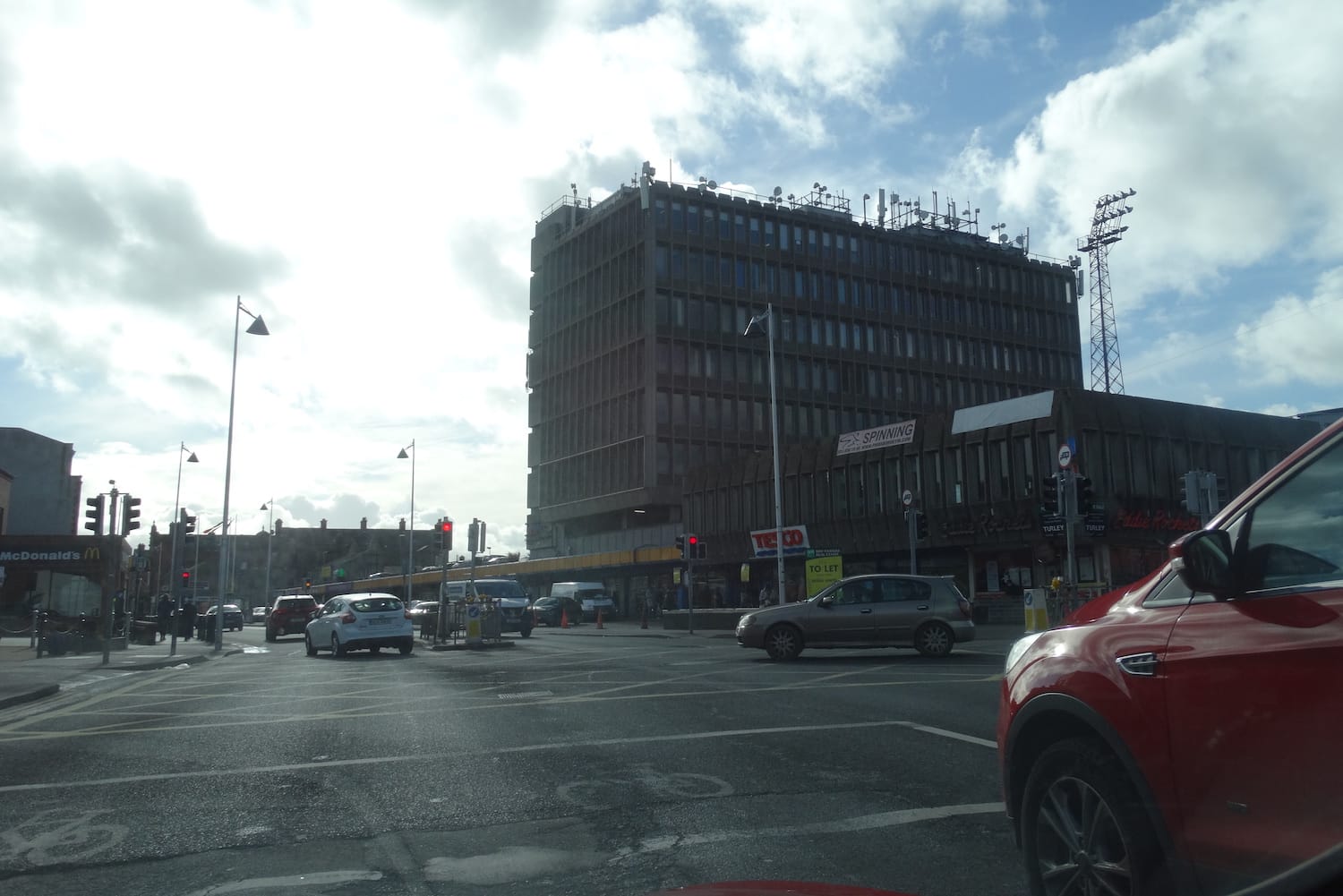What’s the best way to tell area residents about plans for a new asylum shelter nearby?
The government should tell communities directly about plans for new asylum shelters, some activists and politicians say.
The scheme, called The People’s Transition, is being run from now until August. The first step is to listen to what people want.

The first step is to listen, says Seán McCabe. “Listen to what they care about in their community, and listen to what they’d like to see happen in their community.”
McCabe, an executive manager at the think tank Tasc’s Climate Justice Centre, which looks at issues around social justice, is working on a pilot scheme to try to tackle climate change through local ground-up projects.
Two communities are part of the pilot: rural Ardara in Donegal, and urban Phibsboro in the north of Dublin city.
“Any solutions that attempt to be totally technocratic will result in climate injustice,” said McCabe, on the phone last Friday.
If only the wealthy are able to participate in climate action, McCabe says, “the result is people being left behind”.
The scheme, called The People’s Transition, is being run from now until August.
“The entire thing is to figure out how we make people’s lives better through tackling climate action,” McCabe says.
McCabe has already been involved in projects in Phibsboro in the last couple of years to try to green the neighbourhood.
In 2019, shops signed up to a Phibsboro Going Green pledge, committing to goals such as reducing waste or cutting air miles on what they sell.
More recently, he joined the local football club Bohemian F.C. as its climate-justice officer, and he has set about auditing the club to see how it can reduce its carbon footprint.
Phibsboro was chosen for The People’s Transition trial because of its anchor institutions, diverse community and the strength of existing community structures, McCabe says.
“Practically, it also made sense, as I live in the community and so am familiar with it. Given Covid and limitations on travel, it seemed to make sense to choose a place I could be active within,” he said.
As with the Phibsboro Going Green initiative, he plans to start the new scheme by consulting with experts.
And by experts, he says, he means locals.
“The expert isn’t the person with the book smarts coming in and telling the community what to do. The expert is the community themselves,” he says.
“I think we have a ways to go in Ireland in terms of incorporating local knowledge and local expertise into our planning and our decision making,” he says.
Depending on Covid-19, communities will either meet online or in person, McCabe says.
They want to be inclusive and online meetings have downsides, he says. “There is a risk of excluding older people from the project.”
The next step after meeting with the community is to co-create solutions with the community, McCabe says.
“In so far as possible to find out where the community can, in fact, own the climate action,” he says.
Community wealth-building will be central to these solutions where possible, he says.
Co-operatives, community businesses or local social enterprises are some possible solutions, McCabe says.

There’s already, for example, a local network, the “Phibsboro SEAI”. (The Sustainable Energy Agency of Ireland has a “Sustainable Energy Community Network”.)
The Phibsboro SEAI is a network of communities and businesses looking at how they can improve energy efficiency in the area, says Cillian O’Neill is a secondary-school teacher who lives in Phibsboro and is a network member.
The group aimed to have a wide variety of people in its contact book, O’Neill says. “We’ve built up a database of local stakeholders.”
Those network members include the Mater Hospital, local businesses, Dalymount Park, schools, and social and civic services in the area, he says.
With this local contact book, O’Neill and his colleagues aim to identify local climate issues and how people in the neighbourhood can solve it.
“The vast majority of people who live in Phibsborough live in red-brick houses,” O’Neill says.
Heating efficiency in these houses could be greatly improved, he says. “Whether it be through insulation, heating, improvements in more efficient heating systems, and solar generation.”
A retrofitting co-operative could maybe help solve that, says McCabe. “At some point all of the homes in Phibsborough will have to be retrofitted anyway.”
O’Neill says: “I think that community buy-in is extremely important.” It builds long-lasting climate solutions and benefits the community, he says.
If only the wealthy can afford climate solutions then we will fail, McCabe says
“If you don’t think carefully about who is designing the solutions, then there’s a very good chance that those solutions will reproduce the type of class assumptions and power dynamics that currently exist,” McCabe says.
Climate solutions can often reflect the needs of people who are not worried about where their next meal comes from, he says.
They can fail to include the concerns of people living on the margins, he says.
For example, on a global scale, wealthier countries may be able to afford a transition to fully renewable systems, McCabe says. “But those systems cost more and are inaccessible to developing countries who may be at their debt ceiling.”
It’s the same at a local level if inequality isn’t addressed in the transition, he says.
“People will be left behind and when people are left behind, they will resist change. If people resist, then we run out of time,” he says.
[CORRECTION: This article was updated at 12.30pm on 17 February 2021. Seán McCabe is the executive manager of the Tasc Climate Justice Centre, not of Tasc.]
Get our latest headlines in one of them, and recommendations for things to do in Dublin in the other.